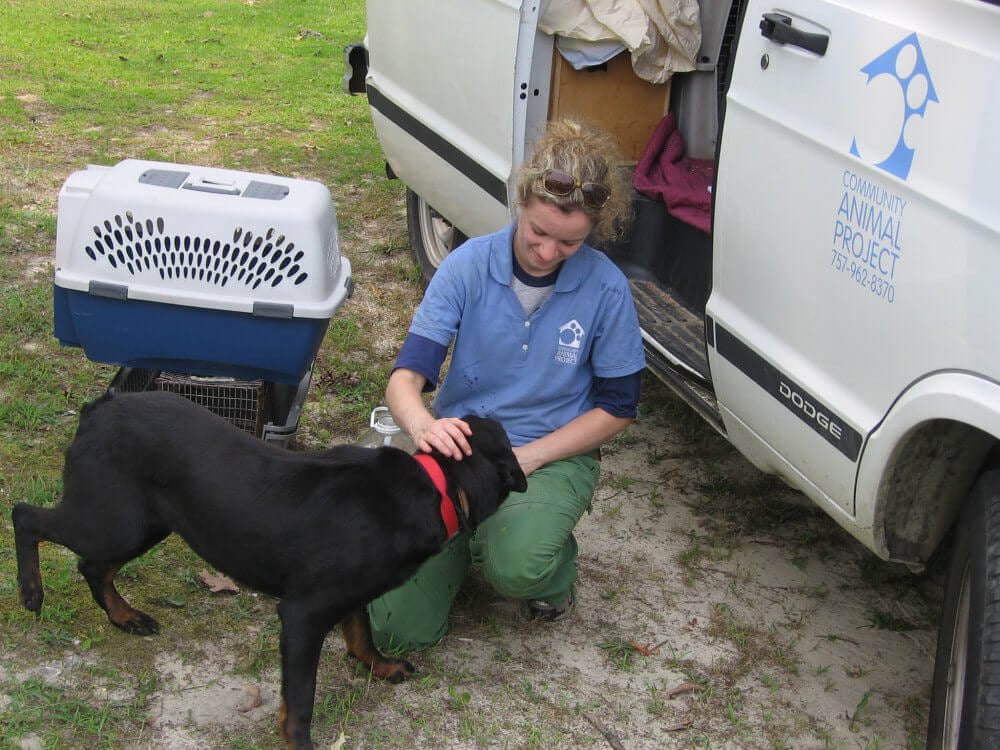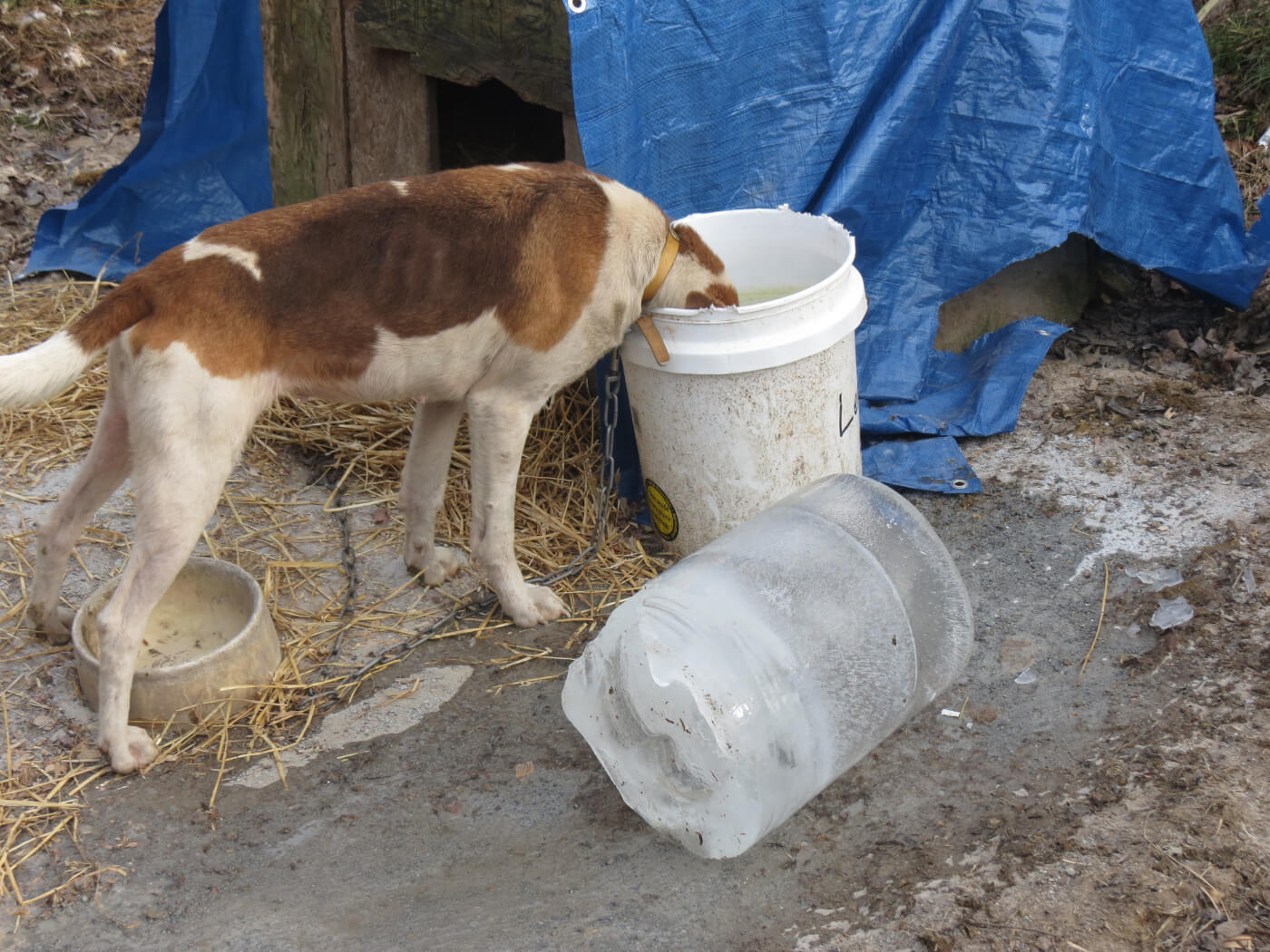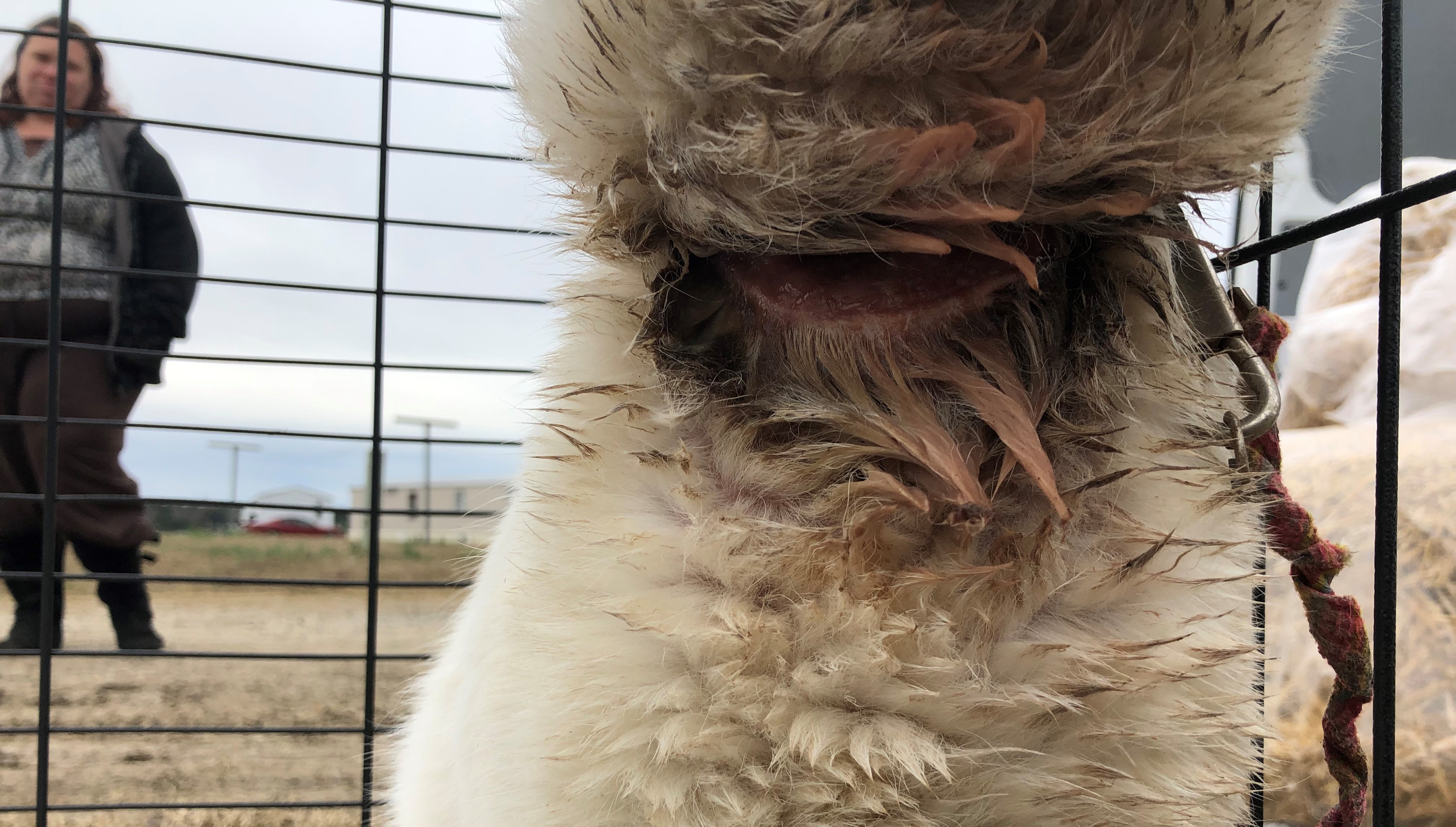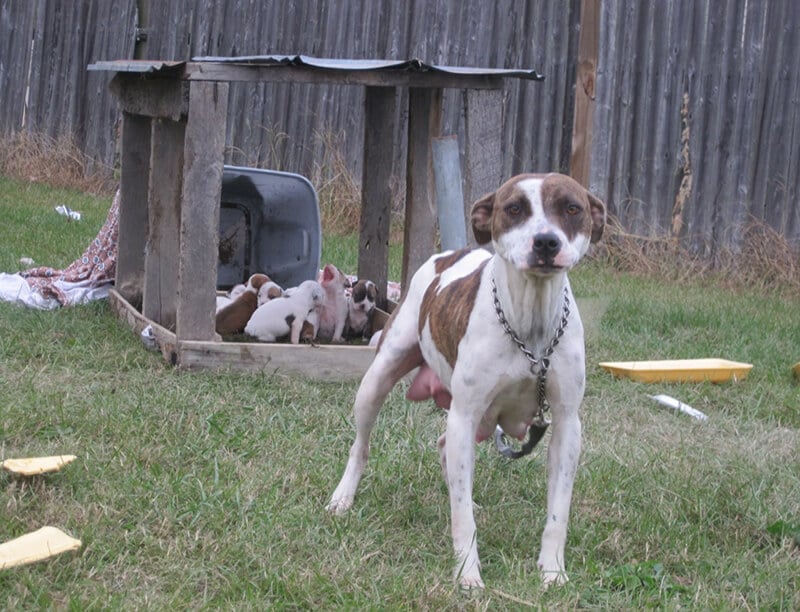The Top 10 Things That PETA Fieldworkers See—and How They Help Animals
PETA’s Community Animal Project (CAP) team is made up of caring fieldworkers who drive for hours each day to check on animals in some of the most poverty-stricken communities in southeastern Virginia and northeastern North Carolina―the area surrounding our Norfolk, Virginia, office. PETA’s fieldworkers provide animals with food, water, flystrike ointment, dewormer, flea and tick prevention, lightweight swivel cables to replace heavy chains, desperately needed affection, and much more.
They offer animal companions a free door-to-door ride service to and from PETA’s mobile clinics for free spay and neuter surgeries and other veterinary services. Our fieldworkers also give people information on properly caring for their animal companions. Often, these animals have no one else to help them―PETA’s CAP team is their last hope, and we’ll never turn our backs on them.
These 10 things are seen by PETA fieldworkers all the time:
1. Dogs are left outdoors in the sweltering summer sun and freezing temperatures.
This is, in part, why we established our doghouse program. Our doghouses don’t just provide shade—they also give “outdoor dogs” a place to escape rain as well as the snow and freezing temperatures of winter. Of course, our fieldworkers always encourage people to keep dogs indoors, but many of those we visit refuse to do so.
2. Mildew, leaves, and other types of debris accumulate in water buckets left out for “backyard dogs.”
We frequently find dirty water buckets and water that’s frozen solid in cold weather (see below). PETA fieldworkers clean these dogs’ living areas and provide them with fresh drinking water.
3. Dogs are left outdoors without any food or water.
Leaving animals without any water can cause them to become dehydrated, especially in warm weather. We often meet dogs who are thin, in which case we provide food, deworming medication, and other necessities.
4. “Backyard dogs” often wear too-tight collars.
PETA fieldworkers routinely replace too-tight collars with properly fitted collars that are comfortable, such as ones made of nylon or canvas. The owners are alerted to the dangers of using collars that are too tight, including damage to the skin and tissue of the neck, as seen in Crystal’s photo below.
5. “Outdoor dogs” are tethered with heavy chains.
Most of the dogs we encounter are tethered outdoors with heavy chains, and most of their owners never interact with them. Our fieldworkers show them affection and (after getting the owners’ consent) replace chains with lightweight tie-outs.
6. Dogs are often flea-ridden.
Many of the dogs our fieldworkers meet suffer from flystrike. We apply ointment to treat it and offer advice about cleaning a dog’s living area every day to prevent this painful infection.
7. Dogs are infested with parasites such as heartworms.
Many of the dogs we serve also have heartworms or intestinal parasites or are covered with fleas. With owners’ consent, we provide these dogs with treatments and medications that the families couldn’t otherwise afford, and we give advice on prevention and bathing to get rid of fleas.
8. Litters of unwanted puppies and kittens are produced.
And if PETA’s fieldworkers and mobile clinics didn’t step in, there’d be countless more. Just one unaltered female dog and her offspring can produce 67,000 puppies in only six years. Our fieldworkers explain to people that not only is spaying or neutering their animal companions vital to preventing suffering and death but it can also help them enjoy longer, happier lives. When people can’t afford to pay, our fieldworkers transport these animals to and from appointments for free.
9. Dogs and cats aren’t groomed, and their hair becomes completely matted.
Many people don’t realize how vital grooming is to an animal’s well-being. Jake (below) was covered with tangled, painfully matted fur when PETA staff discovered him. Heavily matted fur like this can catch urine and feces and hide underlying injuries.

But thanks to some extra-special TLC from PETA and the Virginia Beach SPCA, he was properly groomed before moving into a wonderful new home.
Our team informs people about the importance of properly grooming their animal companions—including bathing them, cutting and brushing their hair, and carefully trimming their nails on a regular basis.
10. Defenseless dogs and cats left outdoors are attacked by other animals, hit by vehicles, get stuck in car engines, or become victims of intentional violence.
This is a big reason why PETA strongly urges people to keep their animal companions indoors. Just look at Russell (below), who was suffering from several bite wounds and couldn’t bear any weight on one of his legs after being attacked by stray dogs (twice!) while left outdoors unattended.
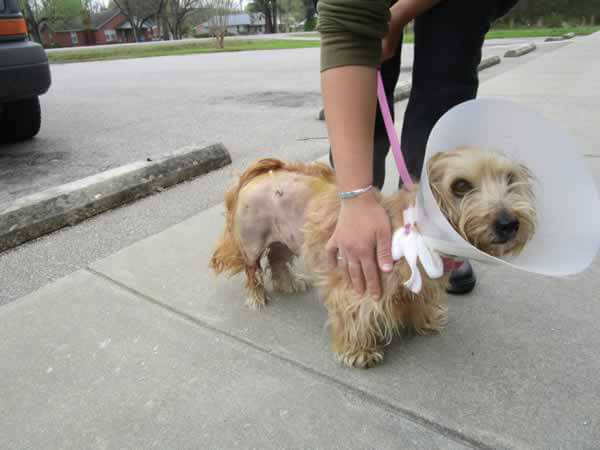
But PETA staff rushed him to a veterinarian, and with treatment, he made a complete recovery.

Whenever possible, our fieldworkers inform people they meet of the importance of bringing their dogs and cats inside before tragedies like these occur. Russell got his “happily ever after,” and it’s our goal to ensure that every other animal does, too.
PETA fieldworkers continue to visit these animals after first meeting them, routinely checking on them in order to monitor their health and living conditions. They show many lonely and forgotten animals basic kindness, respect, and consideration—which many of them have never experienced before.
You don’t have to work for PETA in order to make a difference in the lives of neglected animals. Click the button below to support our work and click here to help put an end to companion animal homelessness:

